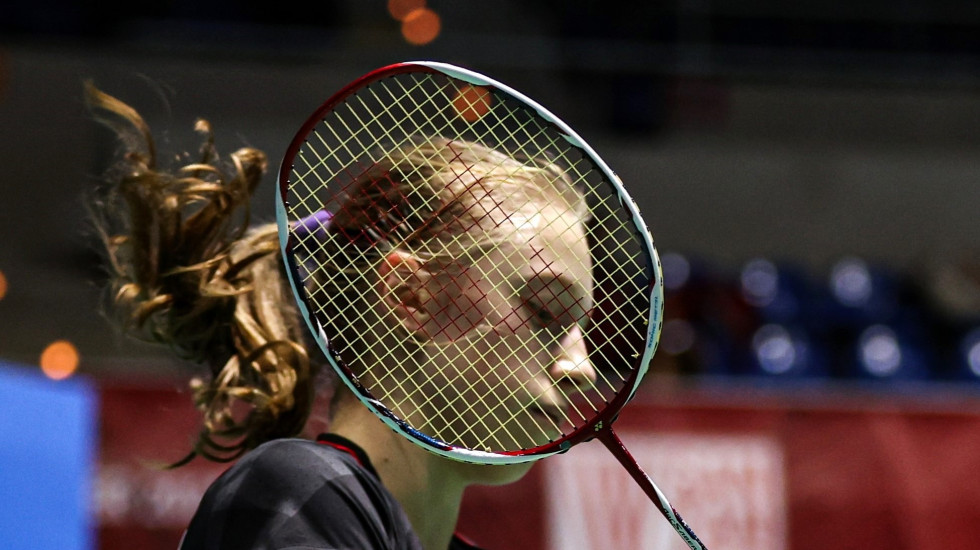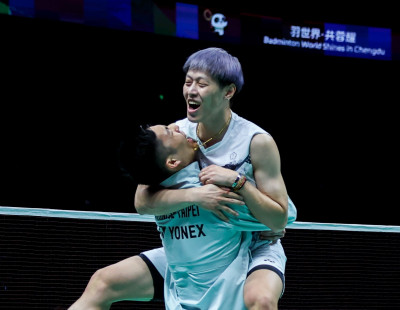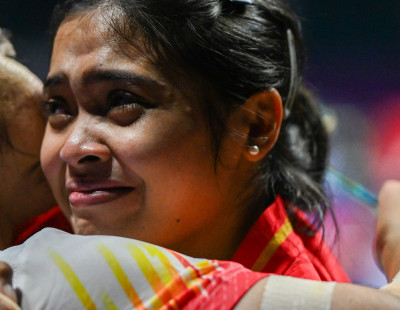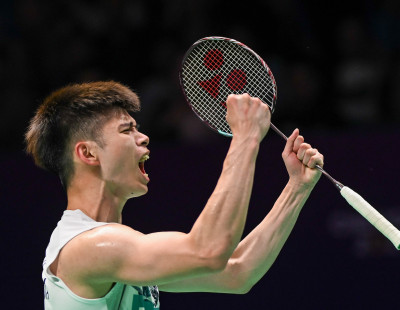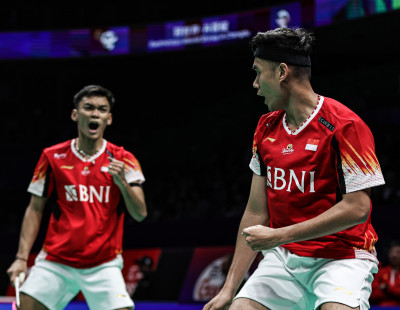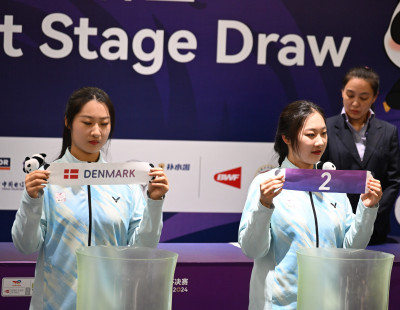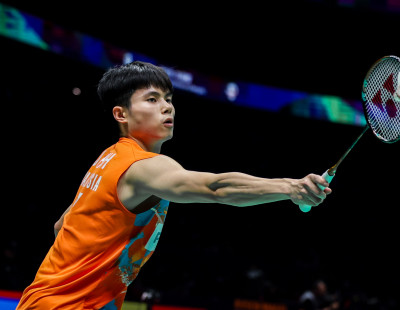There is no trace of emotion in Yevheniia Kantemyr’s voice, but there’s a hard edge.
The 18-year-old talks about life in the wake of war back home in Ukraine. Her mother is in Slovakia with her younger brother; her father has been unable to leave; she herself has spent the last year at a club in Italy and the year before that in France.
Like several Ukrainian badminton players who are based, for now, across Europe – some at clubs, others with coaches, yet others with friends – Kantemyr lives the daily uncertainty of not knowing what the future holds.
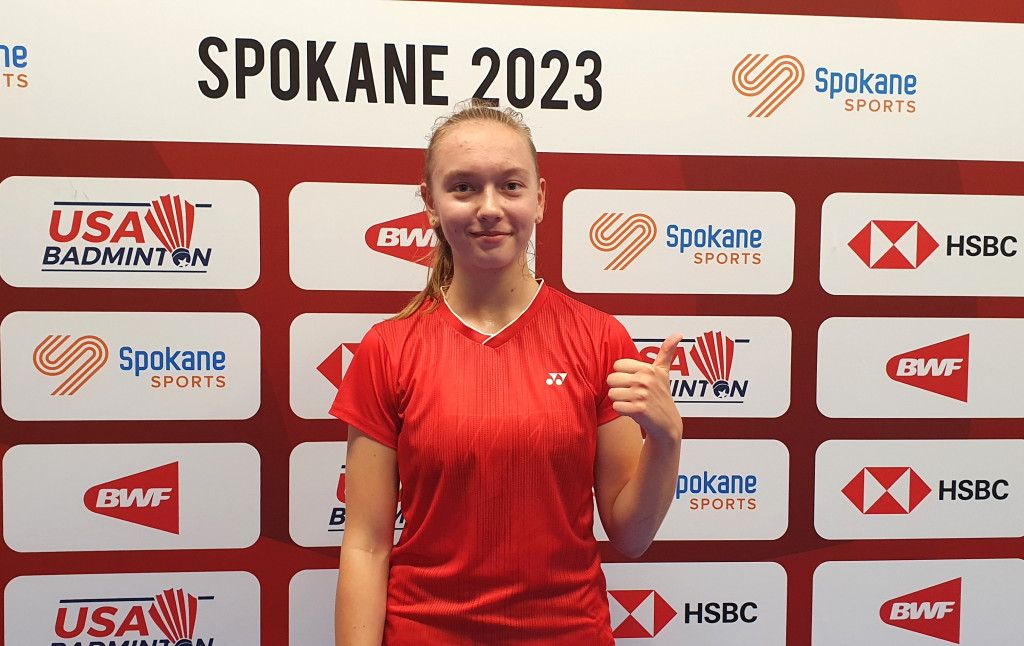
Yevheniia Kantemyr
“It’s not easy, you know? It’s hard work,” she says, sounding far older than her 18 years. “I study online at a Ukrainian university. I shifted to Italy a year ago, and a year before that I was in France. We’ve adapted to it, but it’s not easy.”
Yet, she keeps at badminton – the one sanctuary in a chaotic time. The BWF World Juniors Championships 2023 is her sixth tournament this year, and although she did fall in the second round of women’s singles, she keeps her aspirations alive.
“I want to improve and be at the top level and win tournaments,” she says.
Anna Kriuchkova, Ukraine’s under-19 coach who has accompanied a team of three players to the World Juniors, notices how the cumulative effects of living away from home in unfamiliar surroundings, the absence of family and loved ones, and the daily reality of war is beginning to show. Kriuchkova herself lives in a club in the Czech Republic with four players; barely out of their childhood, the players have been forced to grow up quickly as a mechanism to cope.
“Of course there are emotions,” Kriuchkova says. “Dealing with it (crisis) has almost become a habit because it’s been so long but the players are so different from what they were before the war. Absolutely. They are more adult; they are not like kids. Of course it’s very big pressure, because every day you read the news, every day you’re nervous, every day you wonder about your parents and your relatives in Ukraine, and it’s just a different life. Sometimes it’s good that they’ve grown up so quickly, but of course this situation is not good because it’s war.
“We have a difficult situation, and they are stronger maybe, but it’s a huge price that we’ve paid for getting stronger.”
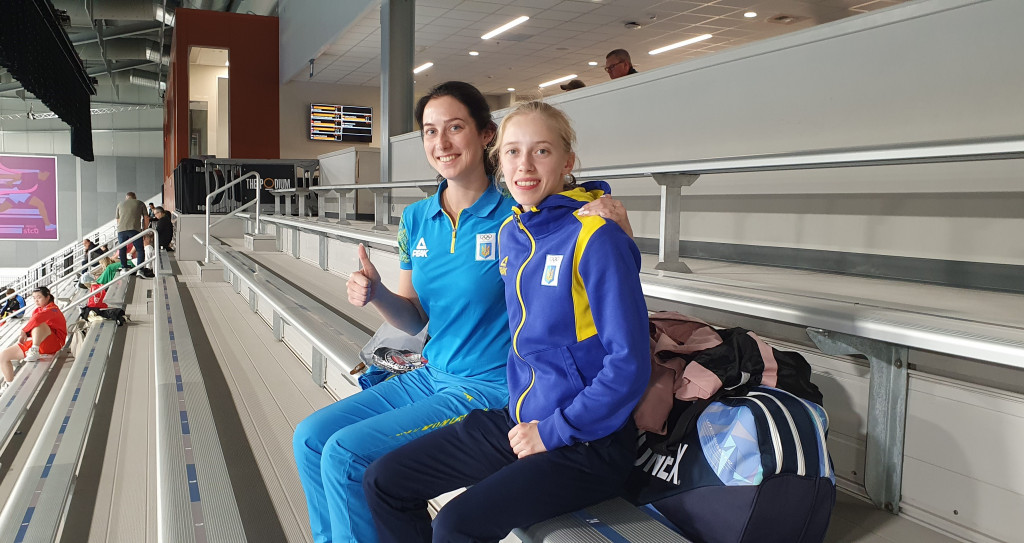
Anna Kriuchkova (left) and Sofiia Lavrova of Ukraine
Kriuchkova was from Kharkhiv, and she recounts that the university sports hall, which had 150 players earlier, is now destroyed in the shelling. While most of the players strive to study and train in Ukraine, a few are now based in various places across Europe; four of them are with Kriuchkova in a club in the Czech Republic. One of those is Sofiia Lavrova, mixed doubles winner at the YONEX 3 Borders U19 tournament in France in May. Lavrova was also in the women’s singles semifinals.
“I was in Kharkhiv Badminton Club for 10 years,” she says. “For the last year I’ve been in the Czech Republic. There’s no shelling there, so it’s safe. Ours is not a normal situation.”
She contemplates the meaning of being at the World Juniors: “I feel these are different lives, being here and being in the Czech Republic. I try to focus on badminton.”
Kriuchkova finds herself providing emotional support for her young trainees at the club and at the World Juniors. She says it’s difficult “because I can see they have waves of emotions, up and down, so I just try to understand and support them. I‘ve started to become more soft maybe.”
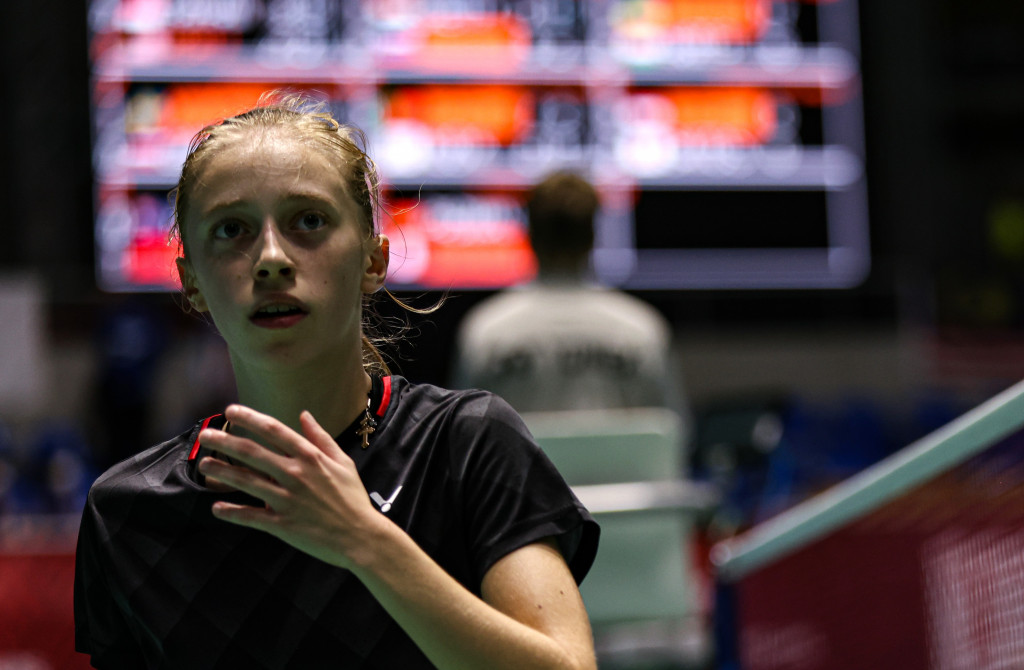
Sofiia Lavrova at last year’s World Junior Championships
Yet, the very fact that they can play badminton at such a time – Kriuchkova and her four trainees, for instance, live in the hall and have nothing else to do apart from play badminton – provides a great healing.
“We live in the sports hall and we have practice morning and evening. Sometimes it’s good, but sometimes so difficult for the mind because the kids are bored. It’s war, it’s not life as usual, unfortunately.
“Badminton has saved us, because we concentrate on our goals, and do it from day to day, and it’s our direction for life. We try to change our focus from the war and it’s much better. We have some hope, and of course for the kids it’s very good.
“I see that they do everything they can. It’s just trust in each other and step by step from day to day, we do something and try to continue chasing our goals.”


















